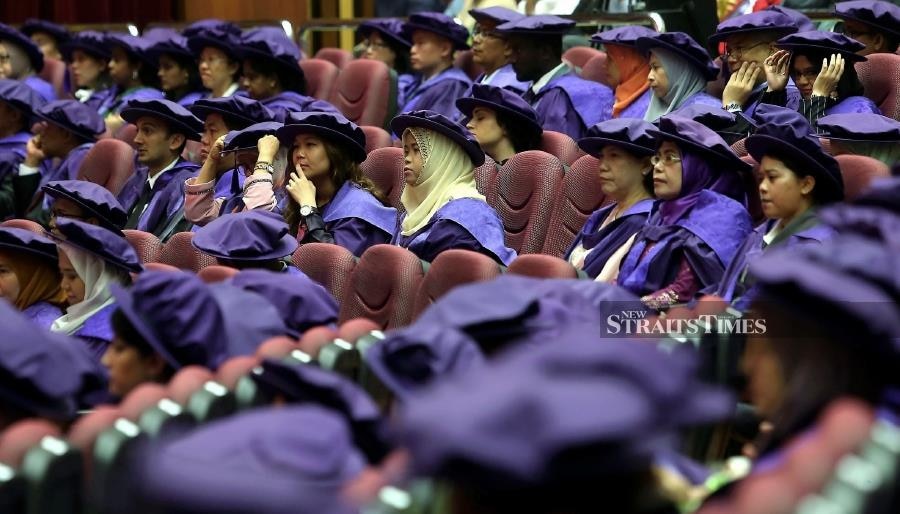Time to 'skip' the ranking game?
Emeritus Professor Tan Sri Dato' Dzulkifli Abdul Razak
Opinion - The New Strait Times
March 9 , 2019

Like it or not, this is enough to scare many institutions resulting in total mental dependency on the league table mindset. NSTP file picNSTP/DANIAL SAAD
THE university rankers were up with their wares again last week, pronouncing this and that. Malaysians are informed of their “best” 10 with some holding their breath. Of the 10, I am closely associated with three at some point.
I should have been happy but not quite so because I am increasingly unsure of the worth of the ranking game. The issues I had for the last decade or so are still unresolved; they are getting more intense instead. I am of the opinion that the whole exercise is “intellectually dishonest”, perhaps bordering on unethical. It was then more of a hunch. Now it is more than just that.
Like it or not, this is enough to scare many institutions resulting in total mental dependency on the league table mindset. And therefore, too, “afraid” to withdraw from the ranking game and the “negative” implications that are to follow, real or perceived. Including being condemned as “failing” even if the drop is a matter of one notch. In other words, one is stuck for life to a particular way of viewing a “university” according to a set criteria preferred by a particular ranker (which itself can be just as mediocre).
It is, therefore, no wonder that no two rankers are alike because they are competing with one another. In fact, some rankers were known to be at loggerheads with each other in the rush to draw in as many clients as possible for better visibility, and for greater profitability. What is vital is the question of relevance to a particular worldview as to how one understands what education is truly about. More often it is slanted towards research and development, forcing many to readjust priorities, reluctantly, in the hope they could be favourably ranked too. Other education missions like teaching and learning, and community services are marginalised, although they are equally important if not more essential as the foundation to education.
It therefore implies if a university is not research biased, chances are it will be poorly ranked. Because research activities require deep pockets, the majority are not well positioned to meet the mark.
The Malaysian league table exempliflies this very well; the older and relatively mature institutions are better ranked. The reverse is also true. What is interesting is when a university that is not known for its research capacity also got ranked among the top 10. It may be a better teaching university instead, but that generally does not count. This can cause confusion leading to speculation as to what is meant by education if there are other sets of “hidden” rules or criteria that others are not privy to.
For example, what happens if there is a hypothetical case of a country wanting to focus more on “community engagement” as a core function of its education system? On top of that, it also wants to cherish values like love, happiness and mutual respect among members of the education sector. Or for that matter, not to link it to STEM (science, technology, engineering, mathematics) but to STREAM (science, technology, religio-ethics, arts, management) backed by Sustainability Science or Education 2030. Do the universities of that country still have a choice to play the ranking game based on the old mantra as conventionally promoted by the rankers, and risk not being aligned with the country’s education mission?
Put it another way, are the rankers more influential than the ministry of education in setting the priorities of the universities that are funded by the government? What is clear is that the present ranking game is no longer relevant to the new changing priorities as described.
This could be compounded when those changing priorities demand a different worldview of what quality education is all about (see CenPRIS, Feb 4). For example, in the context of Falsafah Pendidikan Kebangsaan. Here is where the notion of Education 2030 comes into the big picture in defining education in the context of the 21st century. In a manner of speaking we need to be fully convinced that the ranking game is addressing such a concern as outlined by the global agenda of the UN Sustainable Development Goals (2016-2030). Otherwise, it is only logical to seriously consider skipping the ranking game that is at odds with our needs.
Time to move on.
